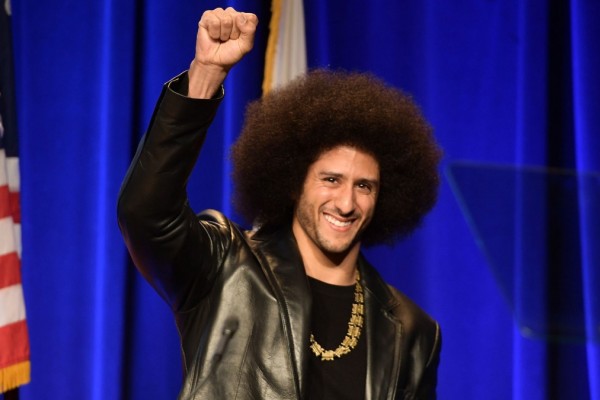-

The meaning of Hillsborough
The following article originally appeared in the January/February 2013 edition of Canadian Dimension to commemorate the Hillsborough disaster, a fatal human crush that killed 97 Liverpool fans during an FA Cup semi-final match at Hillsborough Stadium in Sheffield, South Yorkshire, England, on April 15, 1989. It remains the worst disaster in British sporting history.
-

Swords into ploughshares
Simon Black, lead organizer with Labour Against the Arms Trade, speaks to Sam Gindin, former research director of the Canadian Auto Workers and co-author of The Making of Global Capitalism (with Leo Panitch), about the promise of repurposing the Canadian arms industry’s resources for socially useful production—and winning a just transition for arms industry workers.
-

A Decade of Playing Left-Wing: Sports Heroes of the 2010s
While I admit to being a sucker for these “best of” exercises, as a decade came to a close the stakes were high but the “Athletes of the 2010s” lists were so utterly predictable. But here at Canadian Dimension, winning takes a back seat to building a better world. So here are my nominations for those figures at the intersection of sport and politics that mattered most in the 2010s.
-

A union of women’s hockey players looking for a league of its own
The Dream Gap Tour of elite hockey players put the women’s game back in the news this fall. Some of the world’s best players — including more than 35 Olympians — played in the four-team exhibition tournament that travelled to Toronto, Chicago and Hudson, N.H. A few months earlier, professional women’s hockey seemed to be in crisis.
-

MMA’s Norma Rae
Leslie Smith is a mixed martial arts (MMA) athlete and a former Ultimate Fighting Championship (UFC) top-ten fighter. But the biggest fight of her career isn’t in the octagon — it’s the fight to unionize the sport she loves. Smith is interim president of Project Spearhead, a fighter-driven effort to organize the UFC. Smith also recently gave a speech during a conference for the Economic Policy Institute regarding Project Spearhead. CD sports writer Simon Black’s interview with Leslie printed here has been edited for length.
-

The World Cup is a crime scene
But it’s because the World Cup, much like the Olympics, has become a profit-hungry corporate behemoth. Its crimes are not unique but those endemic to global neoliberal capitalism; a gangster capitalism of “free” markets, lax state regulations, and low taxes that enriches the global one percent and leaves the rest of us behind. Here’s a rundown of the World Cup’s crimes.
-

Race, class, and the revolt of the Black athlete
The Black Freedom struggle has always been a class struggle; for the US context, just read WEB Dubois on the “general strike of the slaves” that turned a war to save the Union into a war to end slavery. In short, in a multibillion-dollar business highly dependent on Black labour, the revolt of the Black athlete is not a race struggle or a class struggle; it’s both.
-

The athletes’ revolt
In the billion-dollar sports industry, players seem aware of the power of their voices and their labour. The director of the NBA players’ association, Michele Roberts, put it best when she said: “There would be no money if not for the players. Let’s call it what is. There. Would. Be. No. Money.” With Donald Trump in the White House and the right on the rise, a growing number of athletes know which side of history they intend to be on.
-

Olympics, debt and repression
One thing that’s going to happen — it’s already happening in Rio — is that you are going to get a lot more repression during the Olympic Games; you’re going to get a militarization of the streets. Rio will have 85,000 security personnel trying to make sure there is no disruption and it’s going to be very regimented and very harsh.
-

The importance of making trouble: In conversation with Frances Fox Piven
Frances Fox Piven is Distinguished Professor of Political Science and Sociology at the City University of New York Graduate Center and past president of the American Sociological Association. She has co-authored, with her late husband Richard Cloward, classic studies of American politics, social welfare, and social movements, including Regulating the Poor (1971).



